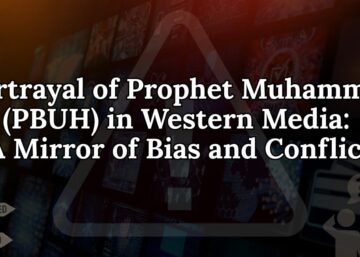Introduction
Ideologically, Qadianism, or the Ahmadiyya movement, represents a gross deviation from the core beliefs of Islam. The claims of this theological and political movement not only oppose the fundamental tenets of the Finality of Prophethood but also stand against the unity of the Muslim Ummah. It is not only a religious duty but also an act of protecting the honor of Islam and the sanctity of the Prophet Muhammad (PBUH) by exposing the deceptions of Qadianism. This article will discuss the Qadiani movement’s historical, theological, and sociopolitical aspects and highlight the scholars’, thinkers’, and communities’ responses to this ideological challenge.
The Foundations of Qadianism and Its Deceptive Claims
Qadianism was founded by Mirza Ghulam Ahmad of Qadian, who, at the turn of the late 19th century, made a false claim to be a prophet, a reformer, and the second coming of Jesus Christ. His claims went directly against the tenet of Islam on the finality of prophethood as declared by Allah in the Qur’an:
“Muhammad is not the father of any man among you, but he is the Messenger of Allah and the Seal of the Prophets.”
(Surah Al-Ahzab: 33:40)
Mirza Ghulam Ahmad’s doctrines included concepts of “shadow” and “manifestation” prophethood, which he defined ambiguously as preying on vulnerable individuals. Such forgeries scattered shadows of confusion and facilitated shirk (Associating partners with Allah) by undermining the sole position of Prophet Muhammad (PBUH).
The Role of International Powers in Supporting Qadianism
From the beginning, Qadianism received indirect and explicit support from colonial and international forces. The British colonial administration in India supported Mirza Ghulam Ahmad and his followers, as they were perceived to be able to divide the Muslim community and weaken anti-colonial movements. In the modern era, anti-Islamic forces across the globe and Zionist organizations have continued to patronize Qadiani agendas to weaken Muslim solidarity and promote secular narratives.
Qadianis have primarily acted as agents of foreign powers, aiding the interests of Western hegemony and standing against the welfare of Muslim Ummah. Their anti-Pakistan agenda, together with their hostility to its nuclear capabilities, reflects their association with opponents of Islam.
Iqbal’s Vision: The Uncompromising Stance against Qadianism
Dr. Allama Muhammad Iqbal, the philosopher-poet of the East, was among the first intellectuals to recognize the dangers of Qadianism. It was his theological as well as sociopolitical concern against the Qadianis when he branded them a betrayal of Islam and a colonial manipulative force used for creating disintegration within the Muslim Ummah.
Key Milestones of Iqbal’s Stand against Qadianism
Through his poetry, public addresses, and written declarations, Allama Iqbal endlessly opposed the doctrinal and conceptual proclamations of the Qadiani movement. His rational precision and firm pledge to the principle of the Finality of Prophethood reflect his unfathomable commitment to conserving Islamic doctrines and accord.
Early Rejection (1902)
In May 1902, Makhzan Lahore and the journal Panjah-e-Fulad by Muhammad Deen Fauq analyzed the concerns of Qadiani views. This exploration directly reacted to the claims of disloyalty that Qadian had originated. To counter these claims, Iqbal expressed his thoughts through poetry:
“You give your life for separation, but I think about the path of unity.
How can I value such worship that causes discord among brothers?
You rejoice over the death of others while I shed tears of sorrow.”
Demand for Minority Status (1935)
In 1916, Iqbal issued a conclusive theological proclamation concerning the Qadiani belief system. He stated:
“Any person who believes in a prophet after the Prophet Muhammad (PBUH), whose denial constitutes disbelief, is outside the fold of Islam. If the Qadiani community holds this belief, they too are excluded from Islam.”
This statement established Iqbal’s well-founded standpoint on conserving the Finality of the Prophethood of Muhammad (PBUH), a principal belief of Muslim Ummah. Iqbal was instrumental in stimulating the declaration of Qadianis as a non-Muslim minority. He said that their opinions prohibited them from being part of the Muslim Ummah and that their political undertakings were detrimental to the cause of Indian Muslims, chiefly the Pakistan Movement.
Cultural and Political Critique
Iqbal uncovered the deception of Qadiani leaders who are sought after to abuse Muslim political struggles for their advantage. He viewed their partnership with British colonial rulers and hostility to Muslim unity as acts of disloyalty.
The Role of Scholars and Communities in Combating Qadianism
Throughout this process, religious scholars have, from theological quarters, responded consistently to the challenge that Qadianism raises. While Iqbal took this upon the philosophical and socio-political plain, the case on the theological ground was put on trial by scholars of religion like Maulana Ataullah Shah Bukhari. Eventually, their results culminated in a declaration of the Qadiani sect as the non-Muslim minority in Pakistan by legislation in 1974.
Key Strategies Used Against Qadianism
Public Awareness Campaigns
Scholars and activists operated determinedly to instruct the masses about the misleading nature of Qadiani politics and its repercussions for the Muslim faith.
Legislative Measures
The Muslim world’s plea for legal acknowledgment of Qadianis as non-Muslims was a noteworthy step in restraining their effect within the Islamic community.
Unity Among Muslims
The challenge of Qadianism highlighted the necessity for harmony among Muslims to counterattack ideological deviances and external coercions.
Qadianism: A Threat to Muslim Nations
The Qadiani movement continues its global operations through Western powers’ patronage. They spread disinformation about Islam, create unrest in Muslim society, and also work to ignite secular ideas against Islamic thinking.
In Pakistan, Qadianis have sought to manipulate political and economic systems to further their agenda. Opposed to the Islamic identity of Pakistan and aligned with anti-Muslim forces, they are always a threat to the sovereignty of Pakistan and the Muslim Ummah in general.
Conclusion: Preserving the Sanctity of Islam
It is, in fact, a service to Allah and His Messenger (PBUH) to defend the Finality of Prophethood and to unmask the Qadiani deceptions. Scholars, activists, and communities who risked everything to confront this ideological menace prove that their love for Islam and Prophet Muhammad (PBUH) was irrevocable.
The Qadiani movement is a theological anomaly and a sociopolitical threat. Muslims should be cautious against their propaganda and should continue educating future generations regarding the sanctity of the Finality of Prophethood. By doing so, we honor the legacy of our faith and uphold the unity of the Ummah in the face of internal and external challenges.



